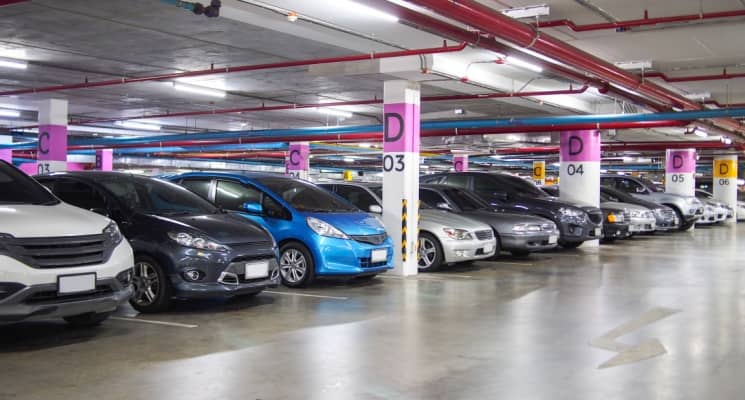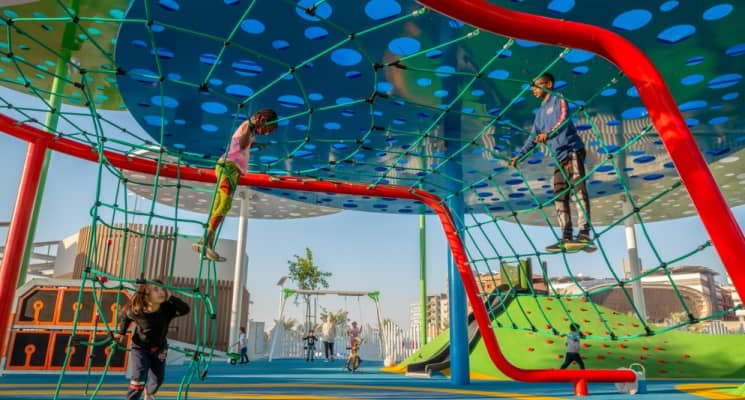Managing expenses effectively after moving to Dubai is rife with all sorts of challenges. That is why it is essential to have an updated knowledge of the local cost of living — from housing, and transportation, to dining and entertainment. Only then can you maintain financial stability while still enjoying what this vibrant city has to offer.
While the tasks related to your move can be taken care of, thanks to the convenience of hiring movers and packers in Dubai, you would still need to deal with budgeting. This blog has all that you should know about living on a budget in this city.
How Much Salary Is Needed to Live Comfortably in Dubai?
According to local experts, a salary ranging between AED 15,000 to AED 20,000 per month is considered sufficient for a comfortable lifestyle in Dubai. This includes the cost of rent, utilities, groceries, transportation, and occasional leisure activities while still saving for the future. Some families may need a higher income, depending on the number of children and lifestyle preferences.

Planning for the Cost of Living in Dubai
It is essential to grasp the basic cost structure in Dubai before you start budgeting. Housing, transportation, education, and recreational activities vary significantly in price compared to other cities. Understanding the cost to live in Dubai as an expat in 2024 is particularly crucial for those moving to the city, as expenses can differ from those in previous years.
By breaking down your expenses into manageable categories, you can easily track your spending and identify areas for savings.
Accommodation
Housing is typically the most significant expense for residents in Dubai. The city’s diverse range of accommodation options caters to various budgets and preferences. Here is a detailed look at how to manage affordable housing costs effectively in Dubai:
Choosing the Right Neighborhood
Selecting the right neighborhood can significantly impact your living expenses and overall quality of life. Take into consideration factors such as proximity to work, public transport availability, and nearby amenities. Affordable neighborhoods like International City, Liwan, and Bur Dubai offer more budget-friendly options as compared to high-end areas.
Renting an Apartment
Renting apartments is the most common housing option in Dubai. But again, the rents vary significantly based on location, size, and amenities. For instance, central areas like Downtown Dubai or Dubai Marina are comparatively more expensive. While areas like International City or JVC range from AED 36,000 to AED 46,000 per year for a one-bedroom apartment. There are many other areas as well where you can rent apartments at affordable prices in Dubai.
When renting an apartment, consider the additional costs of renting an apartment in Dubai such as security deposits, agency fees, and utility connections. Typically, you will need to pay a security deposit equivalent to one month’s rent and an agency fee that is 5% of the annual rent.
Sharing Accommodation
Sharing accommodation is a popular way to reduce housing expenses. By renting a room in a shared apartment or villa, you can significantly cut costs. Prices for shared accommodation vary depending on the location and facilities. For example, you can pay as little as AED 400 per month for shared bed space, which is fairly common amongst bachelors. If you are looking for a complete bedroom to yourself in shared accommodation, the starting price is AED 2,300. Expat communities and social media groups often have listings and recommendations for shared housing options. Additionally, websites like Dubizzle, are also excellent resources for finding various accommodation listings and getting a sense of the current market.
Temporary and Short-Term Rentals
If you are new to Dubai or planning to stay for a short period, temporary or short-term rentals might be a viable option. These rentals are typically fully furnished and include utilities, making them convenient but potentially more expensive. Platforms like Airbnb and serviced apartment providers offer a range of short-term rental options across the city.
Utilities
Electricity and water bills can fluctuate based on usage. While these costs can vary seasonally, they generally constitute a manageable portion of your monthly expenses if used wisely. Your DEWA bill includes expenses for water, energy, sewerage, and housing fees. The housing charge is borne by the property owner, but tenants pay 5%. The regular per-unit rates are as follows:
- Electricity costs AED 0.23
- Water costs AED 0.03
- Sewerage: AED 0.005
The charges mentioned above are for consumption of less than 2000 kWh per month. If you utilize more than 6000 kWh, the charge will be AED 0.38 per unit.
Education
If you are seeking to pursue higher studies, you can also opt for international universities that are licensed and regulated by KHDA — the Knowledge and Human Development Authority in Dubai. According to its official website, out of all the students enrolled in programs at these private institutes of higher studies, one-third are international students. The website would be a good start to get all the information on these fee structures at various private institutions.
Dubai has a number of options of schools offering affordable education from pre-primary to year 12. The cost varies based on the school, location, curriculum, and grade level. Typically, it is around AED 2000 – AED 3000 per month at a good institution.
Groceries
Grocery prices in Dubai can fluctuate, but there are many options, ranging from budget-friendly supermarkets to upscale stores.
Shop at Local Markets and Hypermarkets
Local markets such as the Dubai Vegetable Market and hypermarkets like Carrefour, and Lulu Hypermarket offer a wide range of fresh produce, meats, and household items at competitive prices. Shopping at these markets can help you find affordable groceries compared to smaller, convenience stores. You can keep a lookout for offers and discounts. Supermarkets like Carrefour, Nesto and Lulu have weekly offers where they put up a certain list of products at a discounted rate for the week.
Buy in Bulk
Purchasing items in bulk, especially non-perishable items like pasta, rice, and flour, can help with your savings. Hypermarkets often have promotions and discounts on bulk purchases, which can help reduce your overall grocery bill.
Use Loyalty Programs and Discount Apps
Many supermarkets in Dubai offer loyalty programs that provide discounts and cashback on purchases. For example, the Smiles app by Etisalat offers a range of discounts and deals on groceries, dining, and other services. By using the Smiles app, you can earn points on every purchase and redeem them for discounts, further stretching your grocery budget.
Transportation
The mode of transportation you choose is also an important factor in the overall cost of living in Dubai. Navigating Dubai can be costly if not planned well. If you have your own car, you just need to factor in the costs for petrol and parking. On the other hand, public transport is a budget-friendly option. Here are some strategies to optimize your transportation expenses:
Utilize Public Transport
Dubai boasts a highly efficient public transport system, including the Dubai Metro and buses, offering affordable monthly passes for approximately AED 300. The NOL card simplifies access across all modes of public transport, ensuring convenience and savings. This is convenient for daily commute if your home is near the Metro/bus station.
Carpooling and Ride Sharing
Consider carpooling or using ride-sharing services like Careem, and Uber to minimize commuting costs as compared to owning and driving your own car. Monthly expenses differ depending on your travel frequency and distance.
eScooters and eBicycles
EScooters and eBicycles have become popular, eco-friendly modes of transportation in Dubai. Companies like Lime have placed eScooters and eBicycles at various spots around the city, especially near office hubs. Typically, electric scooter rental in Dubai costs AED 3 to unlock the vehicle, followed by 50 fils (AED 0.50) each minute for the trip. They also offer budget friendly packages where you can get more riding minutes for the same amount. These options are convenient for last-mile connectivity and can help you save on taxi fares or fuel costs.
Embrace Cycling and Walking
For short distances, utilize Dubai’s expanding network of cycling tracks and pedestrian-friendly paths. Cycling and walking will not only save money but also promote a healthier lifestyle.
Entertainment and Leisure Activities
Dubai is renowned for its vibrant dining and entertainment scene. Look for dining deals, happy hour offers, and consider exploring free or low-cost activities, such as beach outings, parks, or community events.
Affordable Dining Options
Dubai boasts a diverse culinary scene, ranging from lavish up-scale restaurants to budget-friendly eateries. While indulging occasionally is part of the experience, dining out frequently can add up quickly. Look for daily specials, lunch deals, and food courts in malls for economical options.
Eating at local restaurants or cafés can cost between AED 10 – AED 50 per meal, while dining at mid-range restaurants may cost around AED 130 per person.
Free and Low-Cost Activities
Enjoy Dubai’s attractions without spending a fortune by visiting public beaches, parks like Zabeel Park, or attending community events and festivals. Entry to many parks is either free or costs a minimal fee, starting at around AED 5. For more details, you can browse through our article on places under AED 50 for kids in Dubai.
Fitness and Recreation
Stay fit without pricey gym memberships by utilizing public parks for jogging or cycling. Join community fitness classes that often cost between AED 50 – AED 100 per session. You can also take advantage of various gym promotions during off-peak hours that can reduce monthly fees.
Maintain Disposable Income
After covering essential expenses, it is important to allocate a portion of your disposable income towards savings and discretionary spending.
Budgeting and Saving
Aim to save at least 20% of your disposable income for future needs or emergencies. For example, if your disposable income is AED 5,000, try to save AED 1,000 each month.
Smart Spending
Make informed decisions about discretionary spending to stretch your disposable income further. Use loyalty programs, discount apps, and look for promotions and deals to get the most value out of your purchases. The main thing is to always keep track of your spending to avoid overspending.
Investing Wisely
Consider investing a part of your disposable income to grow your wealth over time. Low-risk investment options like savings accounts, fixed deposits, or government bonds can offer steady returns. For those willing to take on more risk, investing in stocks, mutual funds, or real estate might provide higher returns, albeit with greater volatility. So, do your research before going that route.
Conclusion
Living on a budget in Dubai requires thoughtful planning and a balance between enjoying the city’s amenities and managing expenses effectively. By following these tips and integrating a well-structured savings plan, you can effectively manage your finances.
If you are anticipating moving to Dubai any time soon, and are in the midst of budgeting expenses, let ServiceMarket help you with an affordable moving service. Just go to the website and let our professional movers in Dubai do the rest. All you need to do is add in the details of your move, and they will come to your house at your given date and time.







